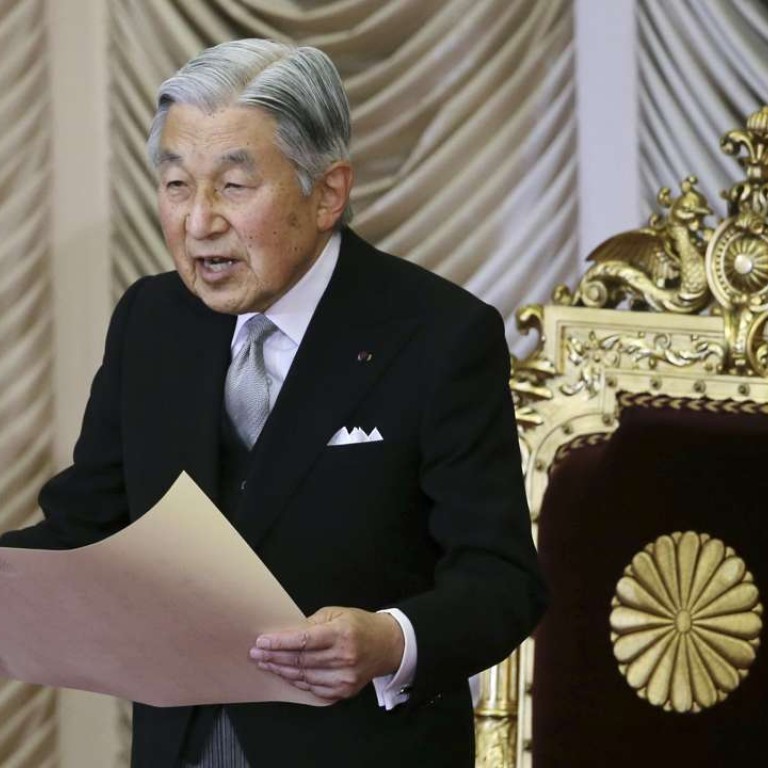
Japan must redefine role of the emperor to meet modern needs
Akihito wants to abdicate but is prevented from doing so by a law introduced in 1947; it’s time to address the legal issues surrounding the imperial institution
The wishes of an 82-year-old person who says they are too old to properly do their job would be respected in most societies. Japanese Emperor Akihito does not have that luxury, though, the constitution having no provision for abdication and, consequently, requiring that he perform his official duties until his dying day. The same document makes clear that he has to stay out of politics, so he cannot even suggest that legislation be changed; that is why in a pre-recorded address broadcast on national television this week he spoke only of his difficulties.
Japanese, whose nation has more elderly citizens than any other, well know his concerns and should openly debate the matter, although they have to be equally mindful of the need to ensure the imperial palace remains apart from government.
Polls show about 85 per cent of Japanese would be willing to see the popular Akihito abdicate in favour of his eldest son, Crown Prince Naruhito, 56. The emperor has had a number of health problems, among them heart bypass surgery in 2012 and treatment for prostate cancer. His annual schedule is busy, with hundreds of engagements involving ceremonies, greeting foreign guests, charity work and overseas trips. At a rare news conference last year, he said that his advanced age had caused him to make mistakes.
But the Imperial Household Law, enacted in 1947, makes no provision for abdication, nor does it lay out the extent of the emperor’s duties. Amending the US-imposed constitution is controversial given that it aims to prevent a repeat of Japanese aggression towards neighbours, the reason Prime Minister Shinzo Abe’s push for a military that can fight overseas is so problematic. Prior to the law’s implementation, the emperor had vast powers, including the authority to declare war, make peace and sign treaties. After Japan’s second world war surrender, the replacement document limited the emperor to being the “symbol of the state and of the unity of the people” and enshrining sovereignty in an elected government.
Akihito’s overseas visits can sometimes be viewed politically, as when he went to China in 1992 and acknowledged his country had inflicted great suffering on Chinese and in honouring Japanese war dead in the Philippines last year. If Japanese agree he should be able to retire, the legal complications should be discussed and thought through. If laws are to be changed, the monarch’s role has to be better defined, although in doing so, care has to be taken to ensure there can be no political influence.

